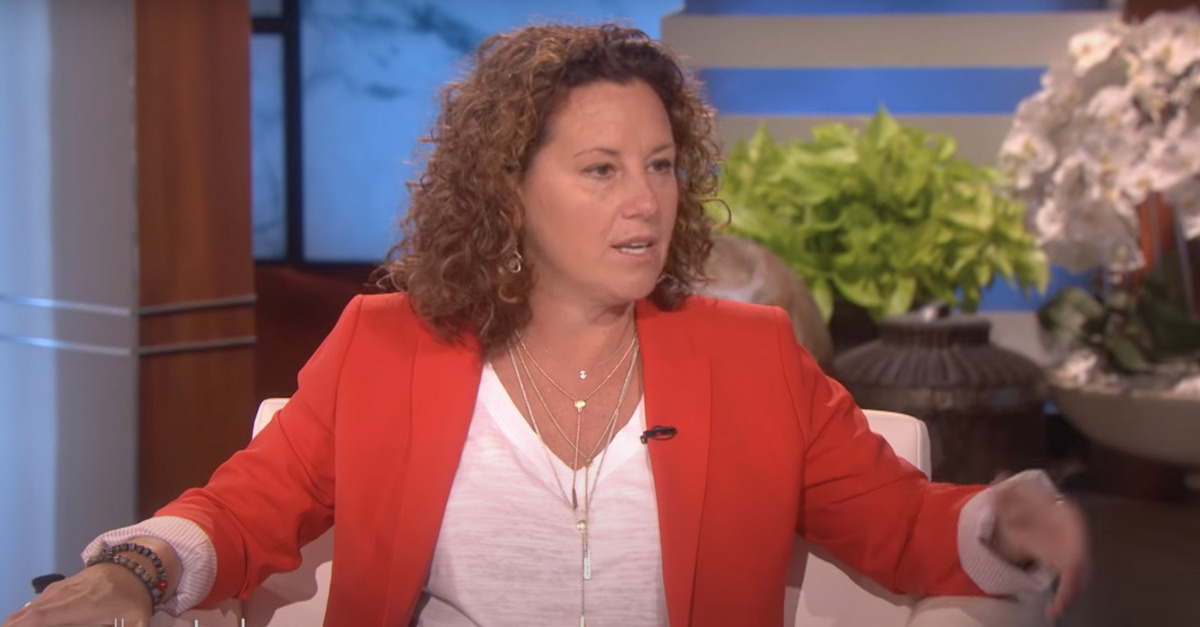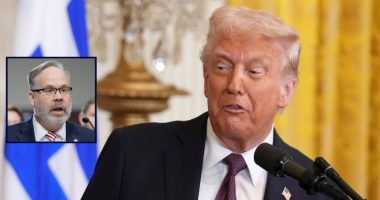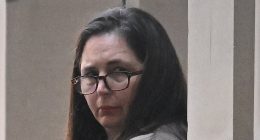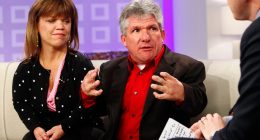
Guidance counselor Shelly Fitzgerald discusses being fired for being in a same-sex marriage on the Ellen show. (Screengrab via YouTube)
The U.S. Court of Appeals for the Seventh Circuit has ruled that a high school guidance counselor’s own actions and admissions justified a school’s decision to fire her for being in a same-sex marriage.
Shelly Fitzgerald worked as the co-Director of Guidance at Roncalli High School, a Catholic school in Indianapolis that she also attended, for 14 years. According to court findings, Fitzgerald “was, by all accounts, a good and effective employee and earned years of stellar performance reviews during her tenure.”
Despite Fitzgerald’s positive record, however, Roncalli fired her after it learned that she was married to a woman. Another guidance counselor, Lynn Starkey, was also fired around the same time for the same reason.
Both Fitzgerald and Starkey sued their former employer in separate lawsuits. Starkey lost her case last July and now, Fitzgerald’s lawsuit appears to have suffered the same fate.
The primary legal issue in Thursday’s ruling was not whether the school discriminated against Fitzgerald on the basis of her sexual orientation — the school was clear in admitting that it had indeed fired her on that basis. Rather, the question was whether the school was entitled to discriminate against LGBTQ+ employees even though federal employment law prohibits it.
The U.S. Supreme Court ruled in 2020 that firing someone “merely for being gay or transgender” is illegal as sex-based discrimination under Title VII of the Civil Rights Act of 1964. However, a relatively new exception to that rule — which one Supreme Court justice has denounced as being an “extraordinarily potent” method of “giv[ing] an employer free rein to discriminate because of race, sex, pregnancy, age, disability, or other traits protected by law” — allows religious schools to discriminate with no legal repercussions.
The “ministerial exception” has its roots in a 2012 Supreme Court ruling that churches have full freedom to decide who will hold a position as a religious leader. The Supreme Court expanded the ministerial exception in 2020 to allow teachers to be considered “ministers” for purposes of anti-discrimination law. At the time, Justice Ruth Bader Ginsberg said that the Court’s expansion of the exception was “staggering,” and warned that it could lead to disastrous consequences such as teachers being stripped of legal protections for being fired after speaking up about child sex abuse by school officials.
Despite Ginsberg’s warnings, the Supreme Court has continued to expand the exception, and lower federal courts have followed in lockstep.
Read Related Also: Cops still have questions after charging Carlee Russell with faking her disappearance
Roncalli High School invoked the ministerial exception in response to Fitzgerald’s lawsuit, and Senior U.S. District Judge Richard Young, a Bill Clinton appointee, sided with the school. On appeal, a three-judge panel of the U.S. Court of Appeals for the Seventh Circuit affirmed.
U.S. Circuit Judge Amy St. Eve, a Donald Trump appointee, penned the decision for the panel, which was rounded out by U.S. Circuit Judges Michael Brennan — another Trump appointee — and Joel Flaum, appointed by Ronald Reagan. St. Eve appeared unconcerned by the possibility of the exception’s misuse, noting that “a church cannot show entitlement to the ministerial exception simply by asserting that everyone on its payroll is a minister or by requiring that all employees sign a ministerial contract.” Rather, the judge wrote, a discrimination plaintiff can overcome the defense simply by “producing evidence that the church’s justification is pretextual.”
St. Eve recounted a number of ways that Fitzgerald’s own actions — and not mere pretext on the part of the school — support a finding that she was a “minister.”
Among other things, St. Eve pointed to Fitzgerald’s helping develop evaluation criteria for other guidance counselors, which included “religious components,” and taking part in the school’s Administrative Council that discussed a morality survey, and participating in “at least some religious planning and discussion.” The “religious planning” done by the council included a discussion about whether to distribute wine or include music during church services, whether to hold a prayer service for victims of the Parkland school shooting.
According to St. Eve, Fitzgerald “held herself out as a minister” by admitting that she spoke up during a council meeting to express concern over the Archdiocese’s policy of “informing transgendered youth’s parents.” St. Eve also said that Fitzgerald’s own statements to the school prove that she was a minister, even if she was just exaggerating her own performance in order to get a raise. The judge quoted from Fitzgerald’s self-evaluation:
“I am working the first retreat of the year, and plan to help more with St. Vincent de Paul. I consistently attend Sunday church service, all masses at Roncalli, and morning communion services when I am able.” She also emphasized the ways that she used her religious beliefs in her counseling duties, stating: “I consistently use spiritual life and resources in my counseling conversations as well as sharing my own spiritual experiences. … I am faithful, and have no problems sharing my beliefs and my love of God.” She concluded: “In a faith-based school, I feel this definitely is a strength when working with young people who are seeking direction.” These statements confirm that Fitzgerald was conveying religious teachings in her work.
Though Fitzgerald has not yet indicated whether she intends to appeal to the Supreme Court, the current Court would be unlikely to rule against the Catholic high school. In recent years, the justices have shown not only a willingness to expand the ministerial exception, but have also opted to broaden the scope of “religious liberty” more generally. Just this term, for example, the Court ruled that a Christian web designer was entitled to opt out of Colorado’s anti-discrimination law and refuse service to LGBTQ+ clients and an evangelical Christian postal worker was entitled to avoid working on Sundays.
Before Justice Amy Coney Barrett was appointed to the Supreme Court, she and St. Eve were colleagues on the Seventh Circuit. Barrett was widely criticized for authoring an opinion, which St. Eve joined, in which they ruled in favor of male college student who sued his university for sex discrimination after it suspended him for allegedly committing sexual violence against a classmate.
Have a tip we should know? [email protected]







